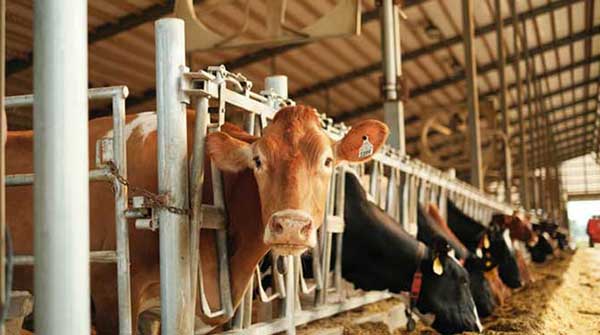Bloc Quebecois push to protect the dairy industry will raise food prices, limit trade opportunities, and harm businesses

For interview requests, click here
More than half of Canadians are feeling the pressure of the rising cost of living. It is even affecting eating habits. Not only have many given up little luxuries like occasional restaurant meals, but they are now much more frugal in their grocery shopping, and some have even had to cut back on what they eat.
Having enough money to buy food is a basic necessity, and you’d expect the Canadian government to take this issue seriously. Unfortunately, that doesn’t seem to be the case. For many politicians, playing political games seems to take priority. A clear example of this is the Bloc Quebecois, whose support in Parliament is now crucial to prevent a no-confidence vote and avoid triggering an election. This shows how politics can overshadow the well-being of the people.
The Bloc has offered to support the Trudeau government subject to certain conditions. One of these conditions is that a law be passed by Oct. 29 ensuring that supply management regulations for dairy and other products are not changed, nor used as bargaining tools in trade agreements or for securing similar benefits for Canada.
Restricting milk and related production has long been a “sacred cow” for the Canadian government (pun intended). This system benefits the small number of producers who hold quotas but comes at a cost to everyone else. Not only do we have to pay higher prices for basic food items, but we’re also limited in terms of choice. A more open industry could provide more options and variety, but the current system keeps those opportunities out of reach.
If that weren’t bad enough, the proposed legislation takes things a step further. By demanding that supply management never be part of trade negotiations, Canada’s ability to negotiate with other countries is severely limited. With fewer options on the table, Canada will likely receive less from other nations in return, reducing our access to international markets and customers.
This means that not only Canadian consumers are being harmed, but so are businesses, employers, and workers. Canadian firms that currently export or have the potential to export in the future will face limited access to international markets, restricting their growth and opportunities.
Canada relies heavily on exports due to its relatively small domestic market. Limiting our ability to reach international customers will lead to fewer and smaller producers within the country. This will result in fewer jobs, lower tax revenue, and a generally weaker economy.
As consumers, we will not only face higher prices and fewer options in the dairy aisle but every product or service that could have benefited from freer and more open trade negotiations will now be less available.
Right now, many Canadians are concerned about the upcoming American presidential election, and rightly so. Some of the proposed policies could hurt Canada. One such policy mentioned by Donald Trump is particularly worrying. In addition to the 60 percent tariff he wants to impose on all imports from China, he is now discussing a 10 percent or even 20 percent tariff on all imports from other countries, including Canada.
Let’s set aside the fact that such tariffs would devastate the American economy and its consumers and focus on what it means for us. More than a third of Canada’s economy depends on foreign trade, with the U.S. being our biggest trading partner. Imposing tariffs would close off, rather than expand, markets and trade opportunities. We know this would have serious negative effects on Canada.
We don’t want others damaging our economy like this, yet the legislation proposed by the Bloc would do exactly that, even if on a smaller scale. The bill has already passed through the House of Commons and is now before the Senate. It’s amazing that it has gone this far.
It’s time for the Canadian government to demonstrate that it is governing for the benefit of all, or at least the majority, of Canadians. The interests of small pressure groups, like dairy farmers, must not be allowed to continue to squeeze our already strained budgets. Our international negotiators must be free to secure the best possible deals for us – whether as consumers seeking variety and affordable prices or as producers who need markets to grow their businesses, create jobs, and contribute to the economy.
The Bloc’s proposed legislation should not be passed.
Dr. Roslyn Kunin is a respected Canadian economist known for her extensive work in economic forecasting, public policy, and labour market analysis. She has held various prominent roles, including serving as the regional director for the federal government’s Department of Employment and Immigration in British Columbia and Yukon and as an adjunct professor at the University of British Columbia. Dr. Kunin is also recognized for her contributions to economic development, particularly in Western Canada.
Explore more on Cost of living, Food prices, Supply management, Bloc Quebecois
The opinions expressed by our columnists and contributors are theirs alone and do not inherently or expressly reflect the views of our publication.
Troy Media
Troy Media is an editorial content provider to media outlets and its own hosted community news outlets across Canada.


